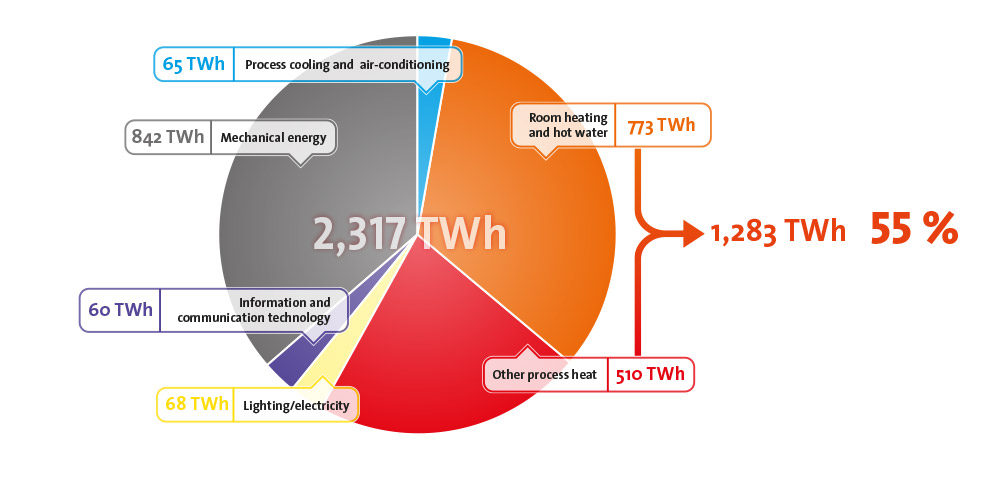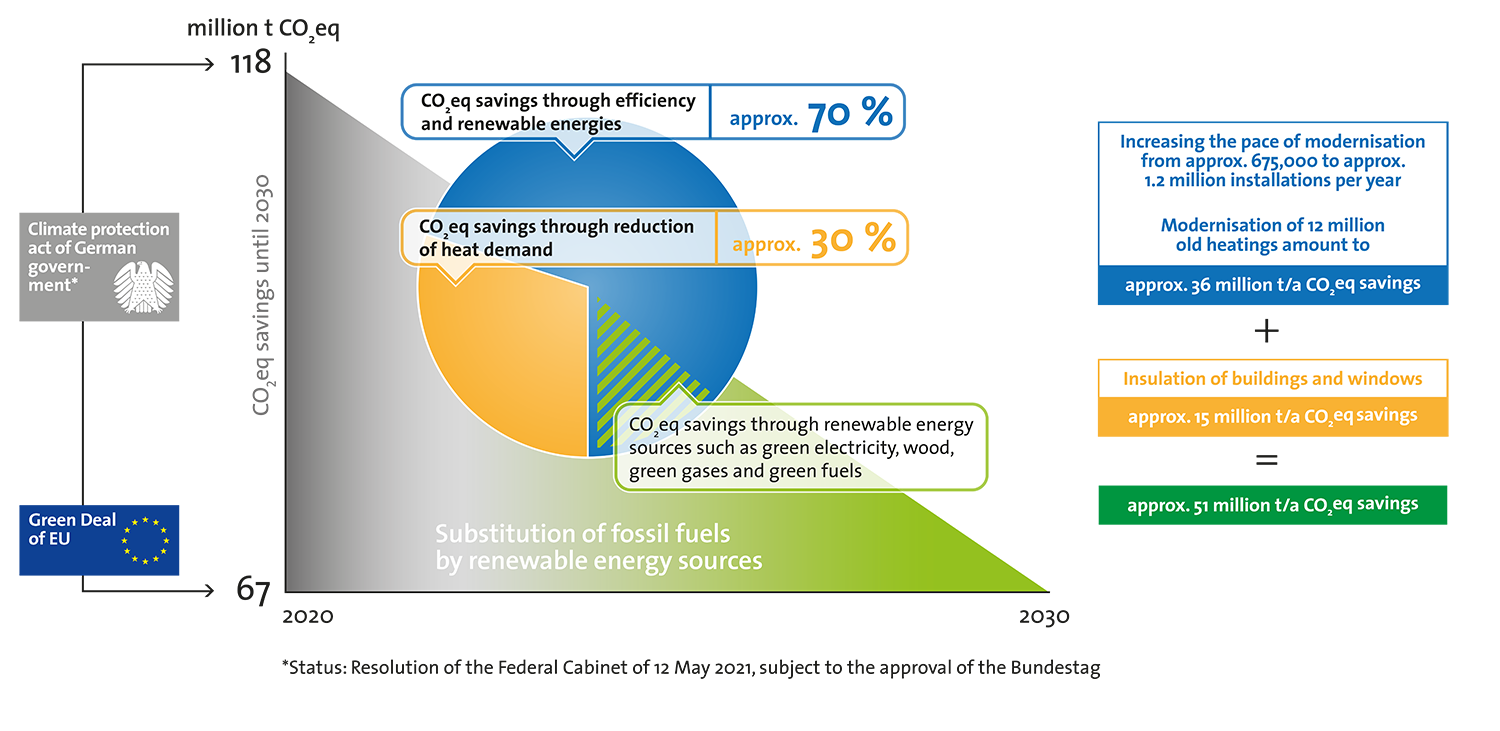On 11 December 2019, the European Commission under Ursula von der Leyen presented the European Green Deal. The goal of the concept is to reduce CO2 emissions in the European Union to zero by 2050 and thus become the first continent to achieve climate neutrality.
Germany's path to climate neutrality is mapped out in the Climate Protection Act. Following the ruling of the Federal Constitutional Court and with a view to the new European climate target of 2030, the Federal Government has now presented a Climate Protection Act 2021. The amendment to the law provides for tightening the targets for lower CO2 emissions. The reduction target for 2030 increases by 10 percentage points to at least 65 percent. This means that by the end of the decade, Germany is to reduce its greenhouse gas emissions by 65 percent compared to 1990. The higher ambitions also affect the CO2 reduction targets in the individual sectors such as the energy industry, transport or the building sector by 2030. In the buildings sector, CO2 emissions are to be reduced from 118 million tonnes today to 67 million tonnes in 2030.
The building sector, which according to the EU Commission accounts for about 40% of energy consumption, is the key to achieving the target. In Germany, too, the building sector and thus the heating market are of central importance. Germany's total final energy consumption is around 2,500 terawatt hours (TWh). One third of this, i.e. about 800 TWh, is accounted for by the heating of buildings and preparation of hot water alone. The electricity sector is far below this, at about 520 TWh. The highest energy saving and CO2 reduction potentials of all energy consumption sectors in Germany, with the exception of coal-fired electricity, are therefore in the building sector.
To achieve the ambitious climate targets in the building sector, all stops must be pulled out. By accelerating the modernisation of around 12 million outdated heating systems, around 70% of the CO2 savings needed by 2030 can be realised. German manufacturers offer a wide range of technical solutions for this purpose, from efficient condensing boiler technology (also as H2ready), heat pumps and wood-fired central heating systems to hybrid heating systems as well as CHP systems and fuel cell heating systems.
Further extensive potential can be achieved through the decarbonisation of energy sources in the heating market. In the future, increasing amounts of green and blue hydrogen, biomethane, green electricity, e-fuels and wood energy will enable further CO2 savings.
Finally, additional CO2 savings potential can be realised through measures on the building envelope, such as the insulation of buildings.


